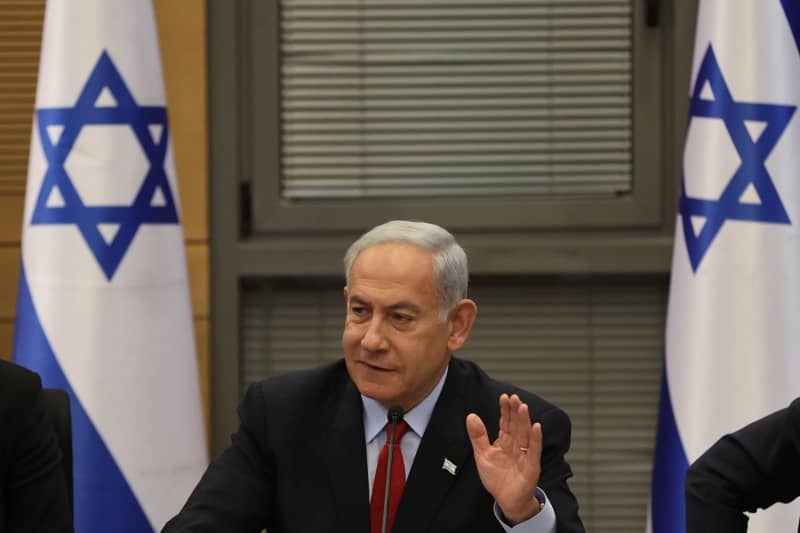Israeli government rejects peace with Palestinians 'by diktats'

- Oops!Something went wrong.Please try again later.
Israel's government has rejected a permanent peace settlement with the Palestinians imposed by "international diktats," with Prime Minister Benjamin Netanyahu's Cabinet unanimously approving a declaration to this effect on Sunday.
"A settlement, if it is to be reached, will come about solely through direct negotiations between the parties, without preconditions," the declaration read.
"Israel will continue to oppose unilateral recognition of a Palestinian state," the government decision also stated. "Such recognition in the wake of the October 7 massacre would be a massive and unprecedented reward to terrorism and would prevent any future peace settlement."
The government's decision was in line with the prime minister's instructions. Netanyahu was responding to media reports that the United States and other allies could recognize a Palestinian state without Israel's consent.
Before the vote, Netanyahu spoke of "remarks that have been heard recently in the international community about an attempt to unilaterally force a Palestinian state on Israel."
Israel took control of the West Bank and East Jerusalem in 1967. Today, around 700,000 Israeli settlers live there among 3 million Palestinians. The Palestinians claim the territories for an independent state with East Jerusalem as its capital.
The United Nations granted Palestine observer status in 2012. Of the 193 UN member states, 139 have so far recognized Palestine as an independent state.
Germany and the US are not among them. They have always emphasized that a Palestinian state would have to be agreed as part of peace negotiations with Israel. However, these have been stalled for a decade.

